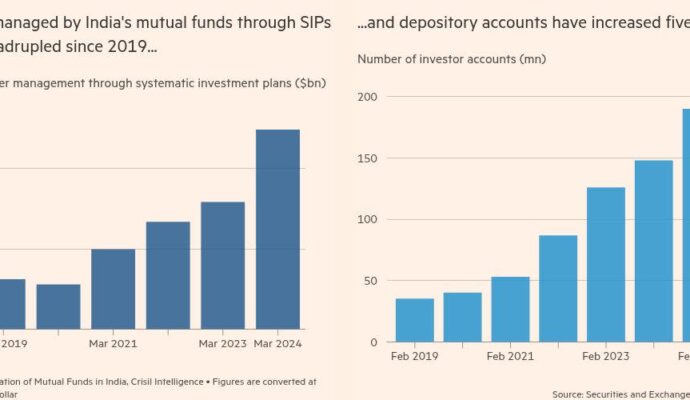
Taylor Swift re-records her way onto the charts
Taylor Swift on Thursday released the re-recorded version of one of her older albums, “Speak Now,” calling the move a “form of rebellion.”
The singer is on a mission to re-record the first six albums in her catalog (she has done three) after the rights to the originals were sold in a contentious deal to the superagent Scooter Braun’s Ithaca Holdings in 2019 for north of $300 million. The investment firm Shamrock Capital Advisors bought the masters a year later for about the same amount.
Ms. Swift argues that re-recording them will allow her to be recognized as the legitimate owner of her work. But while the effort has been cheered for artistic integrity, the other looming question is whether it was good business. (Other artists have tried and failed to reclaim their masters.) DealBook dug into the numbers.
The first two re-records were released in 2021: “Fearless” in April and “Red” in November. Data from Luminate, reported earlier by Music Business Worldwide, shows that by the end of 2022, Swift’s re-releases were winning out on audio streaming charts. (Streaming accounts for the lion’s share of recorded music sales.)
“Red” (Swift’s version) was streamed 961 million times last year, versus 254 million for the original — down 41 percent from a year earlier.
For “Fearless,” Swift’s re-release outstreamed the original 401 million to 257 million.
The re-records lifted the entire Swift catalog. Streaming of her six records jumped roughly 6.5 percent to nearly 2.5 billion times in 2021. Importantly, though, a large proportion of those — 736 million — were for the album “1989,” which Ms. Swift has not yet re-recorded.
Shamrock’s deal is “very vulnerable,” Larry Miller, a director at the music business program at N.Y.U., told DealBook. Still, since the firm acquired Ms. Swift’s catalog after she made her intention to re-record her masters known, it’s possible that Shamrock factored in the possible impact of dilution as part of the deal. (The firm didn’t respond to a request for comment.)
Ms. Swift has made an impact on the broader industry. Universal Music Group has begun to put more restrictive re-recording terms in its agreements with recording artists. And, in due diligence for deals, buyers are now “pretty much universally” looking at contracts to see if there’s a restriction on re-records, said David Dunn, founder of the investment bank Short Tower Capital. — Lauren Hirsch
We’d like your feedback! Please email thoughts and suggestions to dealbook@nytimes.com.


